Introduction
The global housing crisis, environmental degradation, and the urgent need for sustainable development solutions have prompted a paradigm shift in the construction industry. Traditional building methods, often characterized by excessive waste, prolonged timelines, and significant carbon emissions, are increasingly being questioned. In their place, innovative approaches that prioritize efficiency, sustainability, and resilience are gaining traction. Among these, prefabricated construction—particularly using repurposed shipping containers—has emerged as a powerful solution. Lida Group, a pioneer in prefab building technology, has elevated this concept to new heights, creating eco-friendly, high-quality container house communities that are not only sustainable but also secure and socially vibrant. This article explores how Lida Group’s expertise in prefab construction is transforming the landscape of modern housing, delivering communities that are both environmentally responsible and built to last.
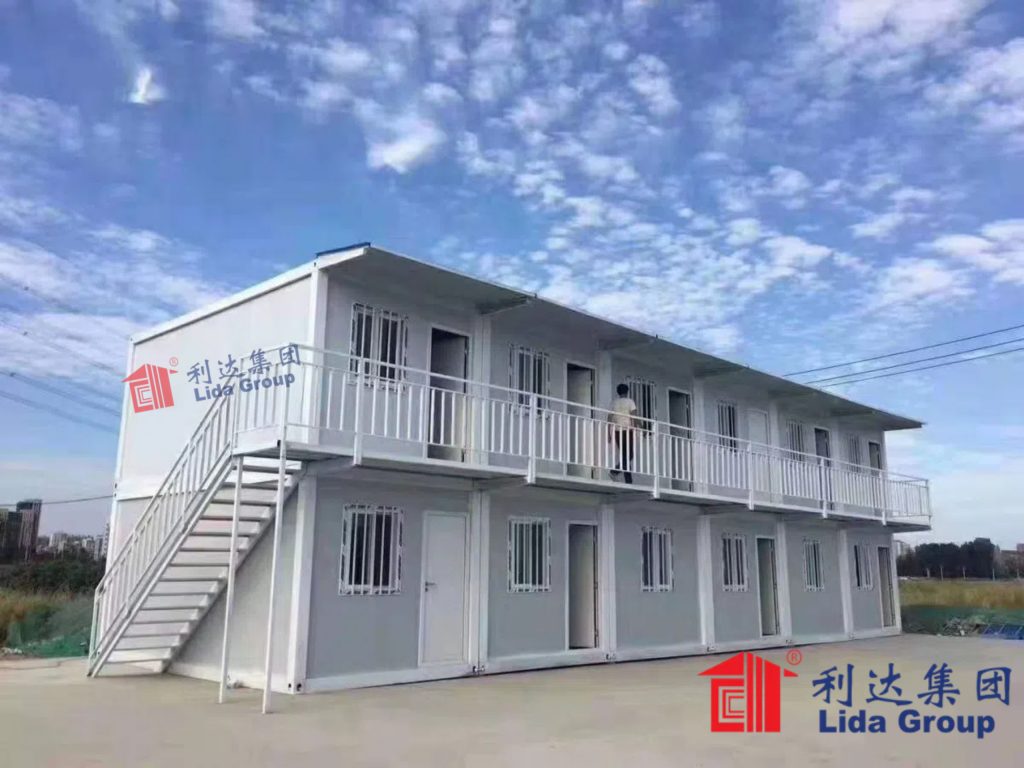
The Global Housing Challenge and the Need for Innovation
Rapid urbanization, population growth, and economic disparities have exacerbated housing shortages worldwide. According to United Nations estimates, over 1.6 billion people lack adequate housing, a number expected to rise in the coming decades. Conventional construction methods are ill-equipped to address this challenge due to their slow pace, high costs, and environmental impact. The construction industry is a major contributor to global carbon emissions, resource depletion, and waste generation, accounting for nearly 40% of energy-related CO2 emissions and 30% of raw material consumption.
In this context, prefabricated construction offers a compelling alternative. By shifting much of the building process to controlled factory environments, prefab construction reduces waste, shortens project timelines, and minimizes environmental disruption. Shipping container-based construction takes this a step further by repurposing decommissioned steel containers—structures that are inherently durable, modular, and designed to withstand harsh conditions. Lida Group has harnessed these qualities, combining them with advanced engineering and sustainable practices to create communities that address both housing needs and ecological concerns.
The Container Revolution: From Cargo to Community
Shipping containers are marvels of modern logistics: standardized, stackable, and built to endure extreme stresses during transit. Each year, millions of containers are retired from service, creating an abundant resource for creative reuse. Lida Group recognized the potential of these structures not merely as building blocks but as the foundation for sustainable communities.
Structural Integrity and Adaptability
Containers are made from corten steel, a material known for its resistance to corrosion and durability. Their structural strength allows them to be stacked several stories high, making them ideal for multi-level housing projects. Lida Group’s engineering team enhances this inherent strength through strategic modifications—reinforcing walls, adding insulation, and installing fenestrations for windows and doors—while maintaining the container’s core integrity.
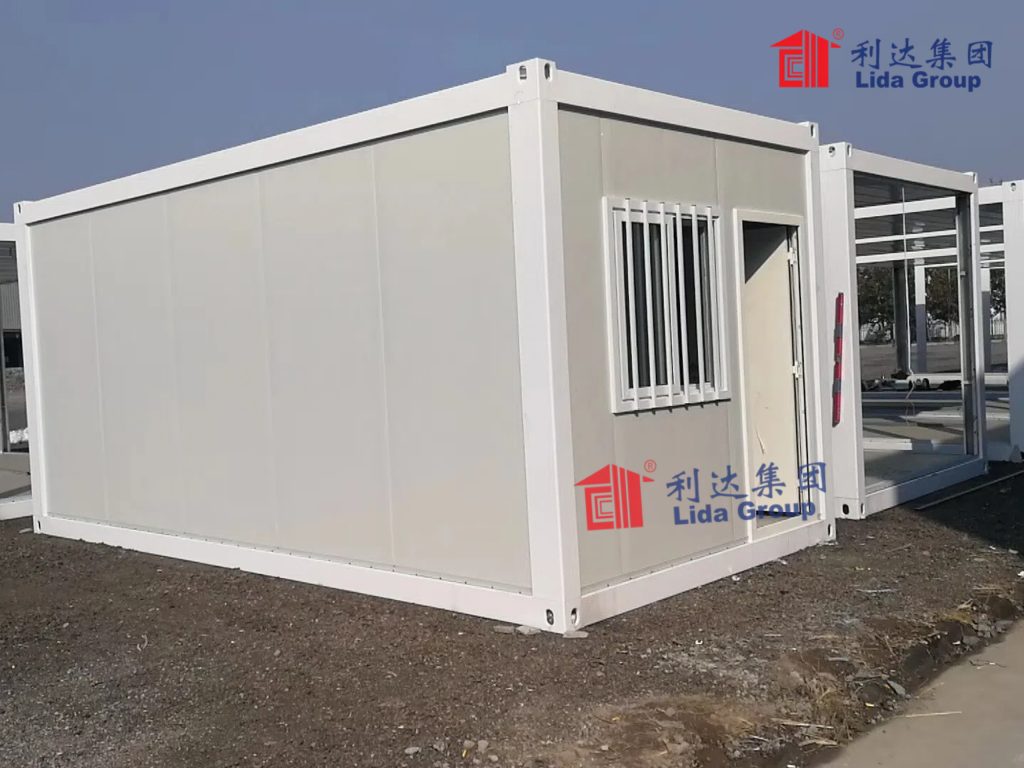
Modularity and Scalability
The standardized dimensions of containers (typically 20 or 40 feet in length) facilitate modular design. This modularity enables rapid assembly and scalability, allowing communities to be expanded or reconfigured as needs change. Lida Group leverages this flexibility to create diverse layouts, from single-family homes to multi-story apartment complexes and mixed-use developments.
Sustainability at the Core: Eco-Friendly Design and Construction
Lida Group’s container house communities are designed with sustainability as a guiding principle. Every aspect, from material sourcing to energy systems, is optimized to minimize environmental impact.
Resource Efficiency and Circular Economy
By repurposing shipping containers, Lida Group diverts substantial steel waste from landfills. This approach aligns with circular economy principles, where materials are kept in use for as long as possible. Each container requires less raw material compared to traditional building methods, reducing the demand for virgin resources. Additionally, factory-based fabrication ensures precise material cutting and minimal waste generation. Off-cuts and excess materials are recycled within the production process, further enhancing resource efficiency.
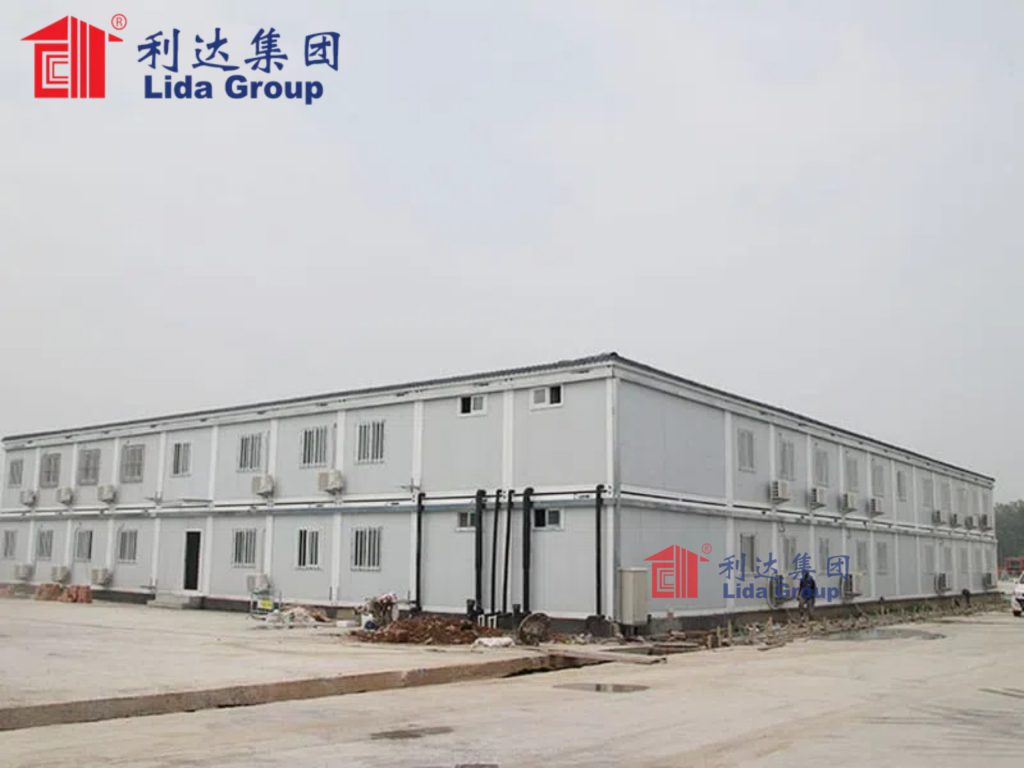
Energy Efficiency and Thermal Performance
A common critique of container homes is their potential for poor thermal performance due to steel’s conductivity. Lida Group addresses this through advanced insulation techniques. High-performance insulation materials, such as spray foam or rigid panels, are applied to interiors, creating a thermal barrier that maintains comfortable indoor temperatures year-round. This reduces the energy required for heating and cooling, lowering both operational costs and carbon footprints.
Renewable Energy Integration
Lida Group’s communities are designed to harness renewable energy. Rooftop solar panels are a standard feature, providing clean electricity for common areas and individual units. In some projects, solar thermal systems supply hot water, while photovoltaic arrays feed excess power back to the grid. Energy management systems optimize usage, storing surplus energy in batteries for use during peak demand or low sunlight periods.
Water Conservation and Management
Water scarcity is a growing concern in many regions. Lida Group incorporates water-saving fixtures, greywater recycling systems, and rainwater harvesting into their designs. Collected rainwater is used for irrigation and toilet flushing, reducing reliance on municipal supplies. Greywater from sinks and showers is treated and reused, minimizing wastewater discharge.
Sustainable Site Development
The prefab nature of container construction reduces site disruption. Unlike traditional building sites, which involve extensive excavation and landscape alteration, container communities require minimal ground disturbance. Lida Group prioritizes passive solar design, orienting buildings to maximize natural light and ventilation. Green spaces are integrated into community layouts, promoting biodiversity and improving air quality.
Security and Safety: Building Communities That Protect
Beyond sustainability, Lida Group places a strong emphasis on security and safety. Their container house communities are engineered to provide a safe, resilient environment for residents.
Structural Resilience
Containers are inherently robust, designed to withstand heavy loads and harsh conditions. Lida Group enhances this resilience through seismic reinforcement, wind bracing, and fire-resistant cladding. These modifications ensure communities can endure natural disasters such as earthquakes, hurricanes, and floods. In regions prone to extreme weather, elevated foundations are used to protect against flooding.
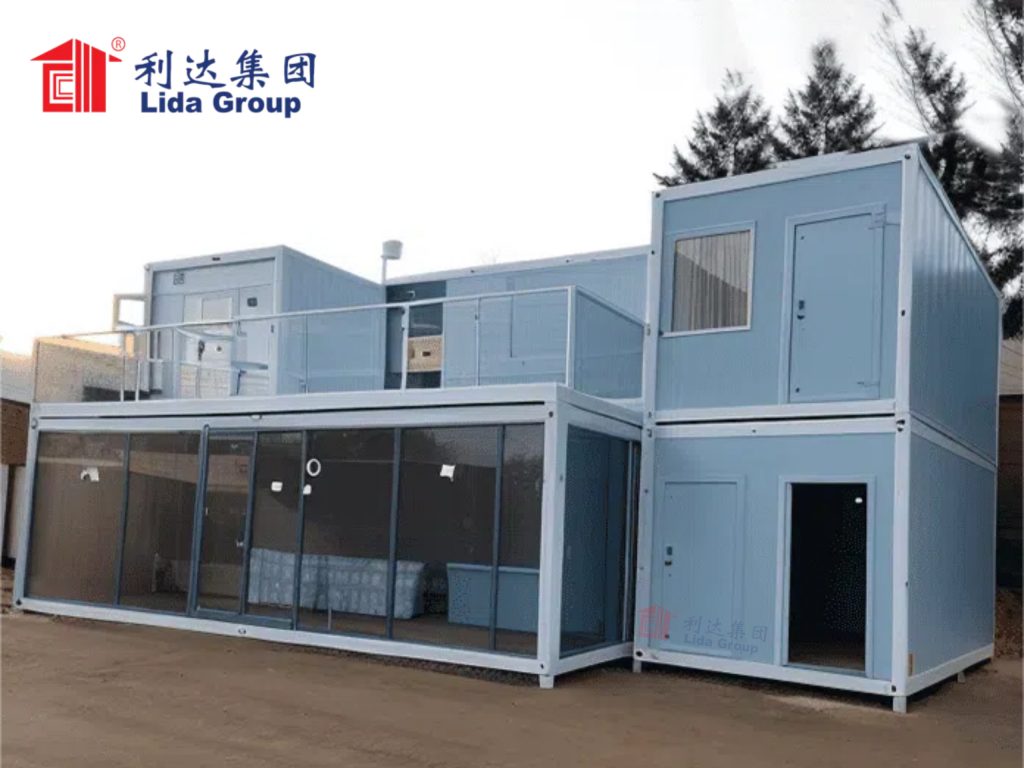
Fire Safety
Steel is non-combustible, providing a inherent advantage over wooden structures. Lida Group further enhances fire safety with intumescent coatings, which expand when heated to form an insulating barrier, and the installation of smoke detectors, sprinkler systems, and fire-resistant insulation materials.
Community Security
Safety extends beyond structural integrity to include personal security. Lida Group’s communities are designed with secure perimeters, access control systems, and well-lit common areas. CCTV surveillance and neighborhood watch programs foster a sense of collective security. The layout of the community promotes natural surveillance, with windows and doors oriented to allow residents to oversee public spaces.
Healthy Indoor Environments
The materials used in interior finishes are low-VOC (volatile organic compounds) and non-toxic, ensuring good indoor air quality. Mechanical ventilation systems with heat recovery provide fresh air while conserving energy. Acoustical insulation between units reduces noise transmission, enhancing privacy and comfort.
Social Vitality: Creating Communities, Not Just Houses
A key differentiator of Lida Group’s approach is its focus on fostering social interaction and community cohesion. Container house communities are designed to be vibrant, inclusive, and supportive environments.
Mixed-Use Spaces
Lida Group integrates communal facilities such as playgrounds, gardens, coworking spaces, and recreational areas into their projects. These spaces encourage social interaction, physical activity, and a sense of belonging. Mixed-use developments may include ground-floor retail or cafes, creating lively streetscapes and economic opportunities for residents.
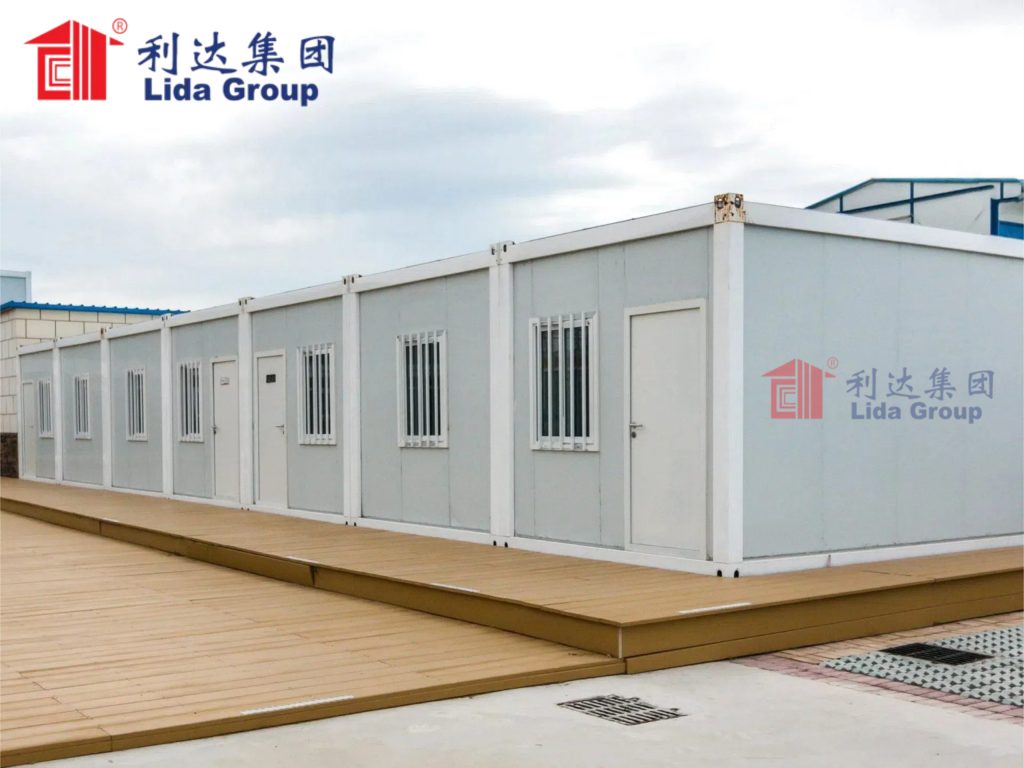
Affordable Housing Solutions
By streamlining construction and reducing material costs, Lida Group is able to offer high-quality housing at affordable prices. This makes sustainable living accessible to a broader demographic, including low-income families, students, and essential workers. Governments and NGOs have partnered with Lida Group to deploy these solutions in underserved urban and rural areas.
Cultural Sensitivity and Customization
Recognizing that housing needs vary across cultures and regions, Lida Group offers customizable designs. Residents can choose from a range of layouts, finishes, and energy options to suit their preferences and lifestyles. This flexibility ensures that communities are not only functional but also culturally resonant.
Case Study: A Model Container House Community
To illustrate Lida Group’s expertise, consider a hypothetical project: the “GreenHaven Container Community” located in a semi-urban area facing housing shortages and environmental challenges.
Design and Planning
The community consists of 50 container homes, ranging from studio apartments to three-bedroom family units. The layout includes clustered buildings around a central green space, with pedestrian pathways connecting residences to communal facilities. Each unit is oriented to maximize solar gain in winter and shade in summer.
Construction Process
Containers are modified in Lida Group’s factory: cut for windows and doors, insulated, and pre-wired for electricity and plumbing. Interior finishes—including flooring, cabinets, and bathrooms—are installed off-site. Modules are transported to the site and assembled using cranes, with the entire community erected in under three months.
Sustainability Features
– **Energy:** Rooftop solar panels generate 80% of the community’s electricity needs. Energy-efficient appliances and LED lighting reduce consumption.
– **Water:** Rainwater harvesting provides 50% of non-potable water demand. Low-flow fixtures cut water use by 30%.
– **Materials:** Over 200 repurposed containers divert 500 tons of steel from landfills. Recycled content is used in insulation and finishes.
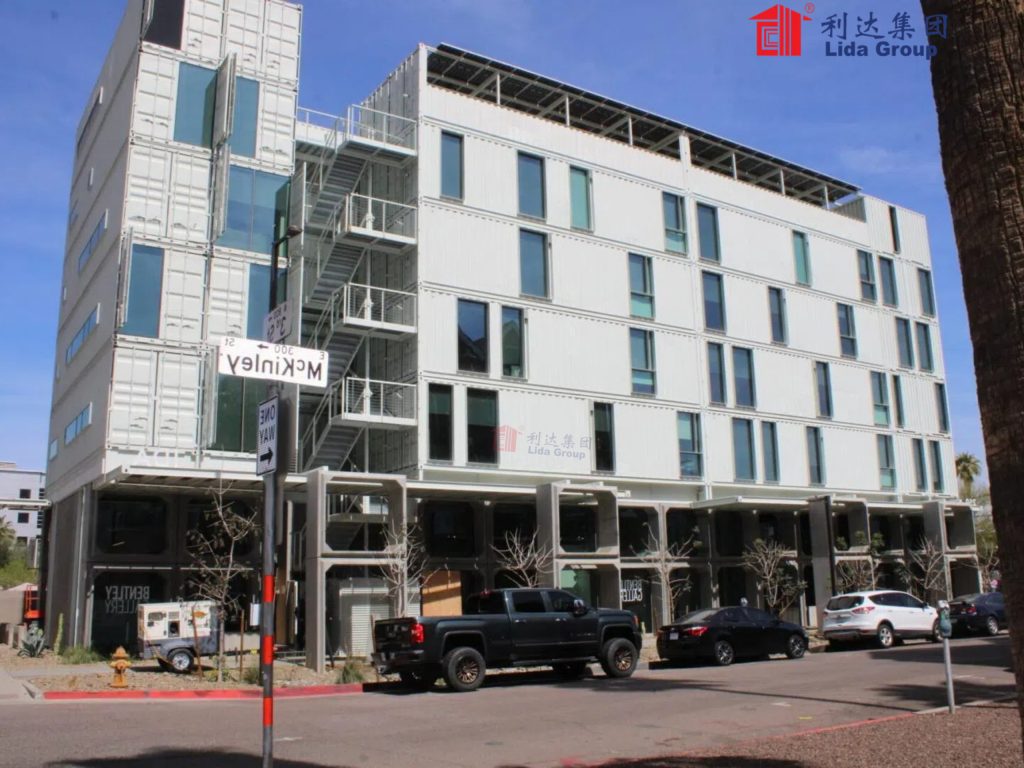
Community Impact
Green Haven provides affordable housing for 150 residents, including families, young professionals, and seniors. Communal gardens promote social interaction and food security. The project has reduced carbon emissions by 40% compared to conventional construction, and residents report lower utility bills and a strong sense of community.
The Future of Container-Based Communities
Lida Group’s work represents a glimpse into the future of sustainable housing. As technology advances, several trends will further enhance the potential of container communities:
Digitalization and Smart Homes
Integration of IoT devices will enable smart energy management, security monitoring, and predictive maintenance. Residents will be able to control their home environments via smartphones, optimizing comfort and efficiency.
Advanced Materials
New insulation materials, such as aerogels or vacuum-insulated panels, will improve thermal performance without increasing thickness. Carbon-negative materials like hempcrete or mycelium composites could be incorporated into designs.
Circular Economy Integration
Future projects may achieve full circularity, with containers designed for disassembly and reuse. End-of-life containers could be recycled into new building products, closing the material loop.
Policy Support and Mainstream Adoption
Government incentives for sustainable construction and affordable housing will accelerate adoption. Zoning reforms and building code updates that recognize the value of prefab container construction will facilitate larger-scale deployments.
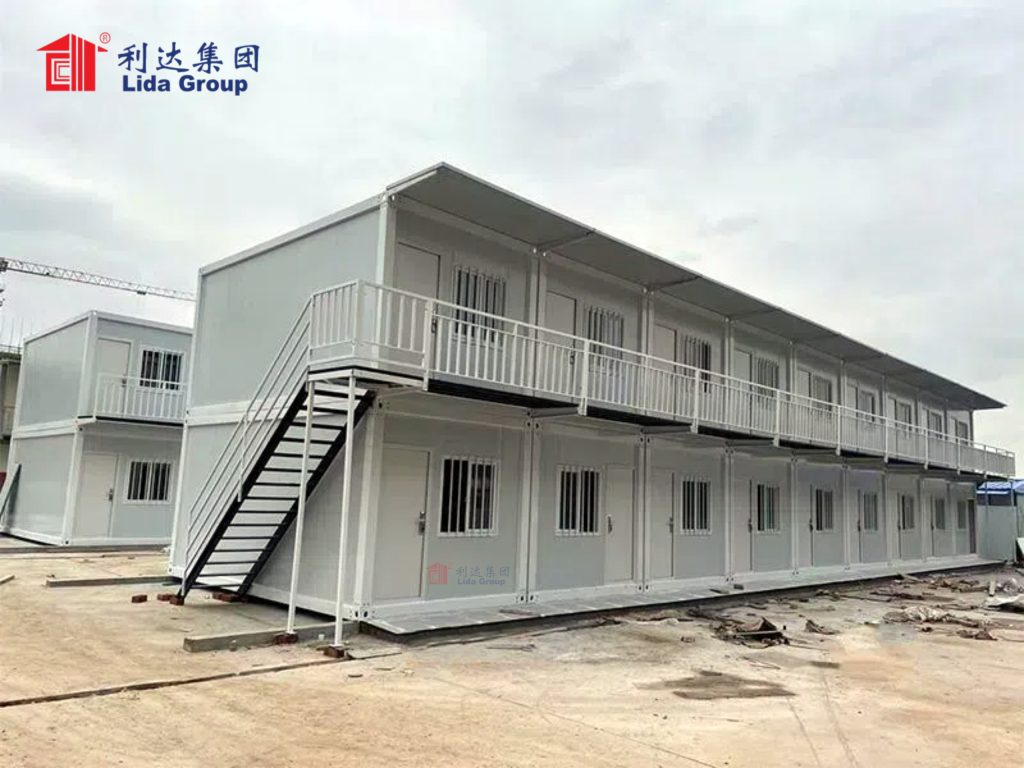
Conclusion
Lida Group’s prefab building expertise has redefined the possibilities of container-based housing, transforming what was once a niche concept into a mainstream solution for sustainable, secure, and socially vibrant communities. By repurposing shipping containers, the company not only addresses the global housing crisis but also champions environmental stewardship through resource efficiency, energy conservation, and waste reduction.
Their communities are more than just collections of houses; they are thoughtfully designed ecosystems that prioritize resident well-being, safety, and social connection. From structural resilience to renewable energy integration, every element is engineered to create a harmonious balance between human needs and planetary health.
As the world grapples with climate change, urbanization, and social inequality, the need for innovative housing solutions has never been greater. Lida Group’s container house communities offer a compelling blueprint for the future—one where sustainability and security are not mutually exclusive but are woven into the very fabric of how we live. Through continued innovation and collaboration, this model has the potential to scale globally, providing millions with homes that are not only affordable and high-quality but also kind to the planet. In the journey toward a more sustainable and equitable world, Lida Group is leading the way, one container at a time.
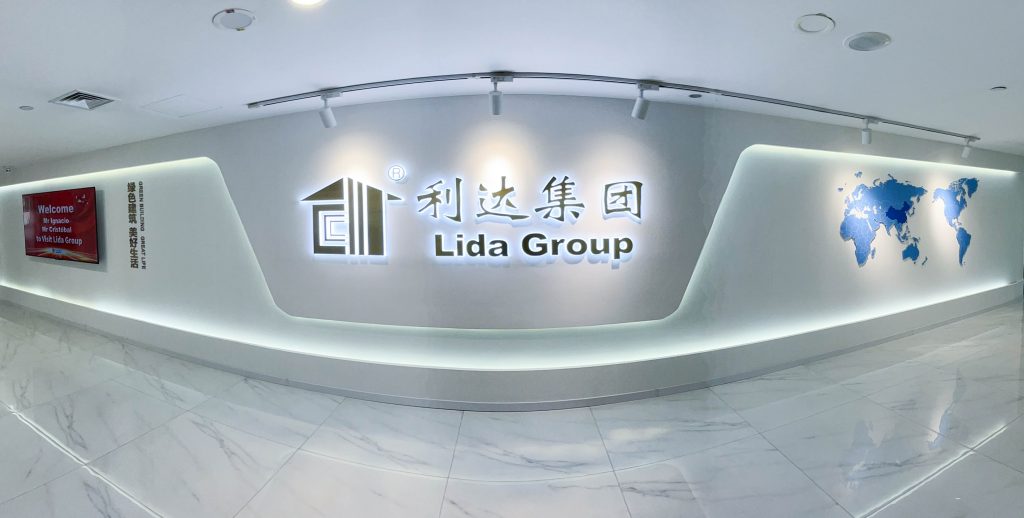
Related news
-
Why Major Construction Firms Choose Lida Group's Container Worker Houses for Durable and Rapid Prefab Building Deployment.
2025-08-27 15:45:54
-
Lida Group Raises the Standard for Worker Accommodation with Its High-Quality Prefab Building Container House Solutions.
2025-08-27 14:54:50
-
The Future of Farming Infrastructure: Smart Technology Integration in Lida Group's High-Quality Steel Farm Houses.
2025-08-26 17:30:30
contact us
- Tel: +86-532-88966982
- Whatsapp: +86-13793209022
- E-mail: sales@lidajituan.com


